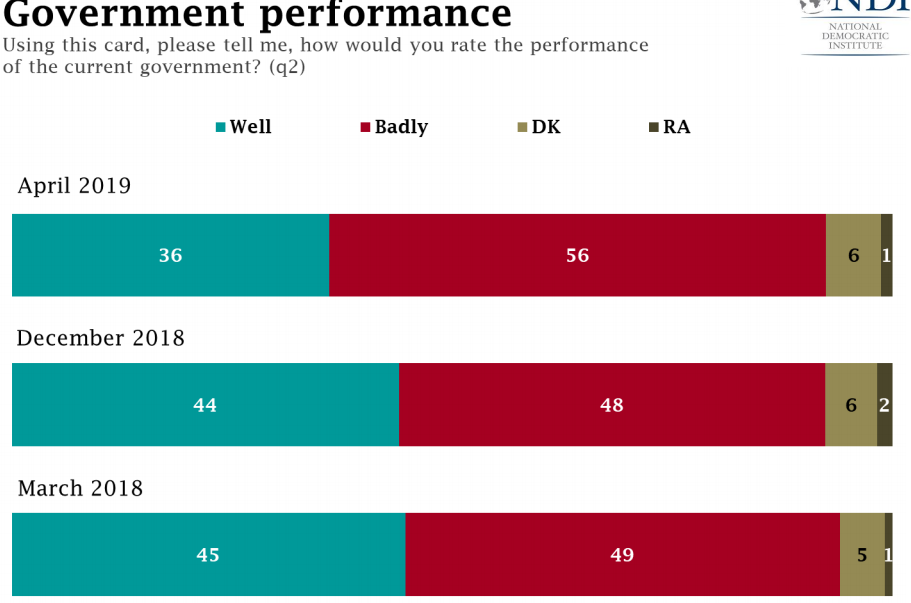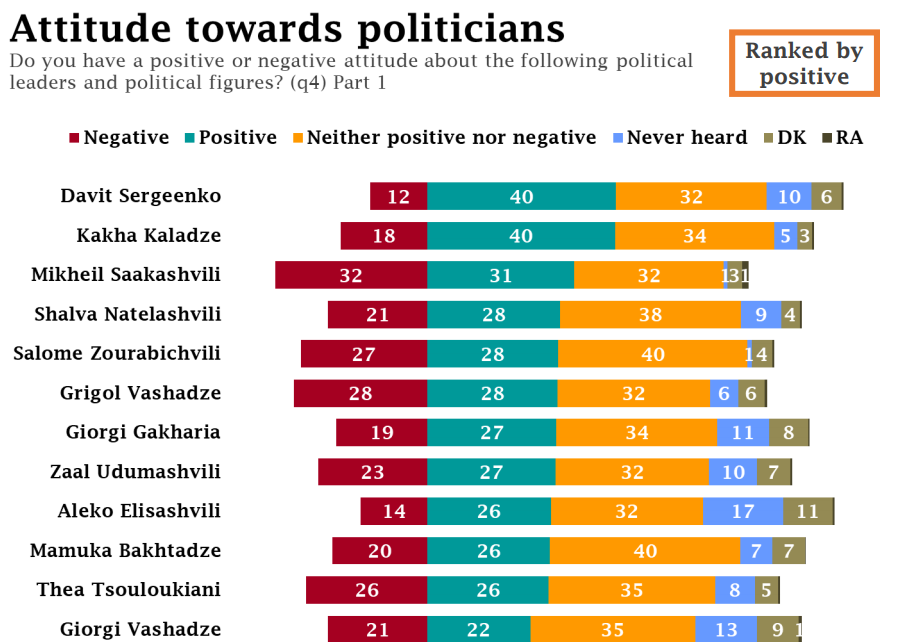NDI polls: support for political parties continues to remain low

The Church remains the most trusted institute for Georgians. Photo: Nino Alavidze/Agenda.ge.
The political part of the survey conducted by the Georgian Office of the US National Democratic Institute (NDI) reads that the support for political parties continues to remain low in Georgia, with 37 per cent of Georgians unable to identify a party to which they feel closest.
The ruling Georgian Dream (GD) party has 21 per cent support, while the opposition party United National Movement (UNM) garnered 15 per cent.

The European Georgia (EG) and the Alliance of Patriots (AoP) opposition parties have four and three per cent support, respectively.
If elections were held tomorrow, the majority of Georgians, 60 per cent, would be undecided about how they would vote, the polls read.
17 per cent would vote for GD, 14 per cent for UNM, and three per cent for EG and AoP.
The stark dissatisfaction of the public with their leaders and lack of confidence in their country’s progress is a clear message to Georgian parties and elected officials to rethink their approach and policies. They need to implement clear, positive, and inclusive agendas and deliver on promises to earn public support in 2020,” said Laura Thornton, NDI Global Associate.

According to the polls 46 per cent say that the country is moving in the wrong direction, and 25 per cent believe it is on the contrary.
The polls read that the performance of the country’s top leaders-prime minister, president and speaker of parliament-has declined sharply over the past three years, with fewer than 20 per cent of Georgians positively evaluating their performance.
However, Tbilisi Mayor Kakha Kaladze enjoys a 43 percent favorable performance ranking from the public,” NDI say.
The polls say that Georgians believe multiple forces are dividing their country and pushing people apart, including the country’s leaders (68 per cent), Georgian media (72 per cent), economic system (73 per cent), Russia (73 per cent), and politicians (81 per cent).

In terms of unifiers, the majority identifies religion and the education system as bringing people together, 62 and 53 per cent, respectively.
Institutions with the highest performance ranking are the Orthodox Church (61 per cent), public service halls (59 per cent), and the army (55 per cent),” NDI says.
Georgians’ worst assessments are of the prosecutor’s office, parliament, and the courts, with only 14 per cent, 12 per cent, and 12 per cent positive evaluations, respectively.
- The results reflect data collected from March 28 to April 15, 2019, through face-to-face interviews across the country (excluding occupied territories), including oversamples in Azeri and Armenian ethnic minority settlements. This included 2,927 completed interviews.
- The survey was funded by the UK government and was carried out by the CRRC Georgia
 Tweet
Tweet  Share
Share